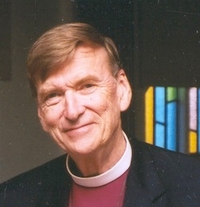Why Christianity Must Change or Die: A Bishop Speaks to Believers in Exile: A New Reformation of the Church's Faith and Practice
John Shelby Spong. HarperOne, $24 (257pp) ISBN 978-0-06-067532-5
Spong, Episcopal Bishop of Newark, N.J., has made a career of debunking fundamentalist Christian views on the virgin birth, the resurrection and the infallibility of the Bible. Here Spong takes on the structure of Christianity itself in order to formulate a Christianity for the postmodern age. Spong contends that Christianity still clings to a premodern view of God and the world that has long since been challenged and discarded by science and philosophy. Yet, the realities of a God-presence, a human figure who embodies that presence (Jesus of Nazareth), and a community of believers who are trying to enact this presence (the church) are central to Spong's Christian belief. Thus, he contends, because the modern world has shattered the premodern views of God and the world and robbed contemporary Christianity of a language adequate to its beliefs, Spong claims that Christian believers now live in exile, still desirous of singing the Lord's song but living in a world and a Christianity that no longer wants to sing that song. Spong argues that Christians must find a new language with which to express their claims if they want to retain a vital faith in the midst of this exile. On the one hand, Spong's plea is an eloquent one: ""Religion is a human attempt to process the God experience, which breaks forth from our own depths and wells up constantly within us."" On the other hand, Spong's theology is so fuzzy--""Jesus was a God presence""; ""This reality [God presence] can be found in all that is but it reaches self-consciousness and capability of being recognized only in human life""--that it results in a book less remarkable for its ideas than for its pronouncements on the end of fundamentalist Christianity. (May)
Details
Reviewed on: 05/04/1998
Genre: Religion
Hardcover - 258 pages - 978-0-06-060500-1
Open Ebook - 288 pages - 978-0-06-073472-5
Other - 288 pages - 978-0-06-114906-1
Other - 288 pages - 978-0-06-175612-2
Paperback - 288 pages - 978-0-06-067536-3
Peanut Press/Palm Reader - 288 pages - 978-0-06-073470-1


